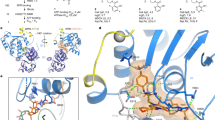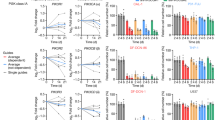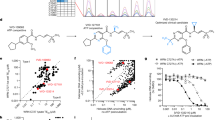Abstract
Evidence was obtained showing that GSH protects against the cytotoxicity of 4-hydroperoxycyclophosphamide (4-OOH-CP) by minimizing the spontaneous fission of 4-hydroxycyclophosphamide (4-OH-CP), its breakdown product, to the ultimate toxic species, phosphoramide mustard (PM). This conclusion was borne out in two series of experiments. The first demonstrated that 4-OH-CP was progressively more stable in aqueous solutions containing increasing concentrations of GSH. The second series of experiments were carried out with tumour cell lines with high (SKOV-3) and low (KHT) GSH contents. The cytotoxicity of 4-OOH-CP, a stable precursor that rapidly gives rise to 4-OH-CP spontaneously under physiological conditions, was enhanced in GSH-depleted SKOV-3 cells, but was unchanged in GSH-depleted KHT cells. It is concluded that the high GSH content of SKOV-3 cells provides a significant protection against 4-OH-CP by limiting the breakdown/activation of 4-OH-CP. Deschloro-4-hydroperoxycyclophosphamide (deschloro-4-OOH-CP), an analogue of 4-OOH-CP that generates acrolein (AC) but not PM in the spontaneous fission reaction, is essentially non-toxic when compared with 4-OOH-CP but is equally potent in depleting GSH. It is postulated that AC may promote the cytotoxicity of the parent 4-OH-CP by depleting cellular GSH. Consequently, the stabilising influence of GSH on 4-OH-CP is removed, leading to increased formation of PM, the ultimate cytotoxic agent.
This is a preview of subscription content, access via your institution
Access options
Subscribe to this journal
Receive 24 print issues and online access
$259.00 per year
only $10.79 per issue
Buy this article
- Purchase on Springer Link
- Instant access to full article PDF
Prices may be subject to local taxes which are calculated during checkout
Similar content being viewed by others
Author information
Authors and Affiliations
Rights and permissions
About this article
Cite this article
Lee, F. Glutathione diminishes the anti-tumour activity of 4-hydroperoxycyclophosphamide by stabilising its spontaneous breakdown to alkylating metabolites. Br J Cancer 63, 45–50 (1991). https://doi.org/10.1038/bjc.1991.10
Issue Date:
DOI: https://doi.org/10.1038/bjc.1991.10
This article is cited by
-
The effect of busulphan on the pharmacokinetics of cyclophosphamide and its 4-hydroxy metabolite: time interval influence on therapeutic efficacy and therapy-related toxicity
Bone Marrow Transplantation (2000)
-
Development of a model of melphalan-induced gastrointestinal toxicity in mice
Cancer Chemotherapy and Pharmacology (1993)



